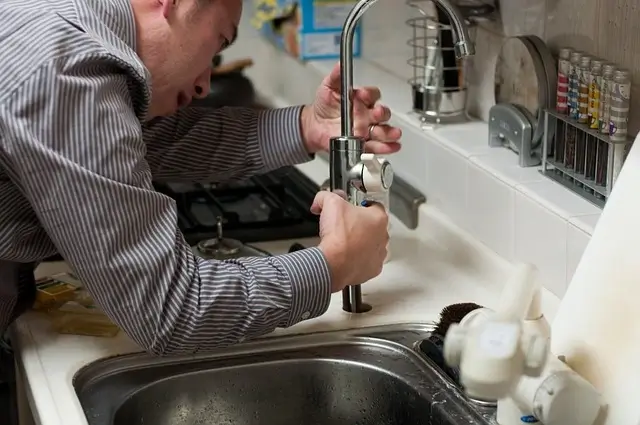In the era of YouTube tutorials and home-improvement television shows, tackling all household problems on your own has become increasingly tempting. Plumbing repairs, in particular, are often approached with a do-it-yourself (DIY) spirit.
Yet, despite the wealth of resources available for the handy homeowner, there are scenarios where expertise and professional experience take precedence. As a trade, plumbing is steeped in years of training, certification, and on-the-job experience.
A professional Hamilton plumber understands not only how to solve a problem but why that problem exists in the first place, which often allows them to prevent future issues from arising. They also have specialized tools and knowledge to deal with more complex problems beyond the surface of DIY repairs.
Understanding the fine line between a quick-fix DIY task and a job requiring professional intervention can save homeowners significant time, money, and frustration. This article explores the different situations when letting the experts do what they do best is advisable.
Burst Water Pipe
A burst water pipe is an example of a plumbing emergency that calls for immediate professional intervention. It’s a serious issue that can cause substantial damage to your property if not addressed promptly and effectively. Water damage can lead to additional problems like mold and mildew, property damage, and structural instability in your home.
Burst pipes often occur due to freezing temperatures but can also be caused by excessive water pressure, pipe corrosion, or mechanical damage. While minor leaks might be manageable as a DIY project, a burst pipe is generally a different story. The force of water from a burst pipe can rapidly inundate your property, and simply applying a patch as a temporary measure won’t address the potential structural issues or the reasons why the pipe burst in the first place.
No Water
Experiencing no water in your home isn’t just an inconvenience; it’s a sign that something is significantly wrong with your plumbing system.
Start by ascertaining whether the issue is localized or widespread. If you have no water in one specific area, such as a single faucet or shower, the case might be a blocked pipe, faucet, or a problem with the fixture itself.
However, if water isn’t available throughout the entire house, it suggests a more severe problem. This could be due to a major blockage or leak in your main water line or an issue with your water supplier. In such cases, it’s typically best to call a professional plumber immediately. They can accurately diagnose the problem, pinpoint its location, and apply the necessary solutions. Fixing such issues without the proper skills and equipment could worsen the situation.
In addition to resolving the immediate problem, a professional can help you understand the underlying cause of the water loss. They might discover aging pipes needing replacement or identify a recurring issue requiring a preventative strategy.
Leaky Pipes and Fixtures
Leaky pipes and fixtures are among the most common plumbing issues homeowners encounter. Whether it’s a faucet that won’t stop dripping or a pipe under the sink that’s slowly leaking, these problems, while seemingly minor, can lead to significant water wastage and eventual structural damage if left unattended.
For minor leaks, particularly those found in faucets or showerheads, a handy homeowner may be able to manage the repair. Often, the issue can be as simple as a worn-out washer or seal, which can be replaced after carefully reviewing a how-to guide or video tutorial. Having the right tools and parts and a bit of patience can result in a successful DIY repair.
However, leaks originating from pipes, particularly those hidden behind walls or beneath floors, present a more complex challenge. Locating the exact source of the leak, accessing the affected area, and replacing or repairing the pipe can be difficult without the proper knowledge and tools. In these cases, it’s often best to call a professional plumber.
Clogs
A simple blockage in a sink, shower drain, or toilet can often be cleared with a plunger or a plumber’s snake, and most homeowners feel comfortable attempting this level of repair. In fact, minor clogs can frequently be prevented or resolved with enzyme-based drain cleaners that break down common sources of clogs, such as hair or food debris.
However, persistent or recurring clogs or those that resist simple removal methods indicate a more serious issue. They may indicate problems deeper within your home’s plumbing system, such as tree roots invading sewer pipes or significant build-up of grease or other materials. DIY attempts can often exacerbate the problem in these cases, leading to damaged pipes or fixtures.
Professional plumbers can access specialized tools and techniques, such as motorized drain augers, hydro-jetting, and sewer cameras, which allow them to locate, diagnose, and effectively clear stubborn blockages. Additionally, they can provide expert advice on preventing future clogs based on the specific characteristics of your home’s plumbing system.
Final Thoughts
Navigating the world of plumbing repairs can be complex yet rewarding. Homeowners can maintain a safe, efficient plumbing system while avoiding unnecessary costs and complications by distinguishing between manageable DIY tasks and situations that require a professional’s expertise.
While there’s a great deal of satisfaction and financial savings to be had in DIY repairs, knowing when to call a professional plumber is just as valuable. Remember, professionals bring years of experience and specialized tools to the table, offering solutions that fix the immediate problem and prevent future issues.

It’s true that one of the most frequent plumbing problems that homeowners deal with is leaking pipes and fixtures. Thanks for also warning us that potentially though they may appear trivial, issues like a leaky faucet or a pipe beneath the sink that is steadily leaking, if left unchecked, may waste a lot of water and potentially cause structural damage. I think my mom needs to hear about this because I heard she has one in her home that needs a professional plumbing service’s expertise to resolve.